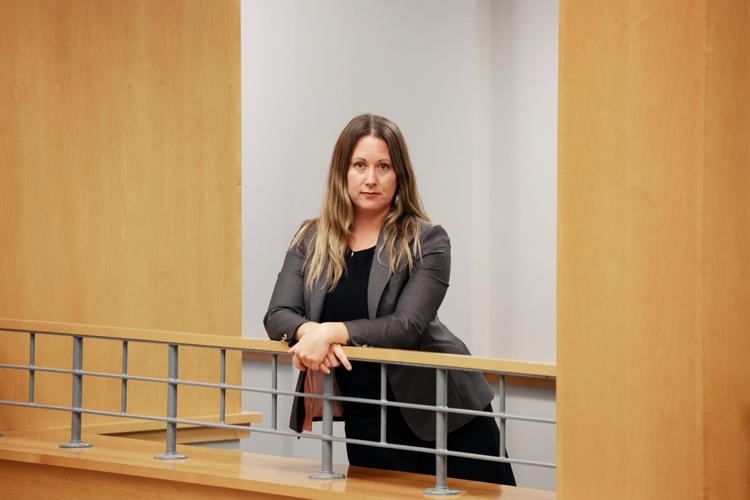DPS used bond money to pay off lease debt, despite denials | ANALYSIS

FILE PHOTO: Students roam the East High School campus during lunch on Tuesday, May 20, 2025. East, the district’s flagship campus, is among roughly two dozen schools no longer owned by Denver Public Schools under a leaseback financing strategy used to raise money without voter approval.
Tom Hellauer/Denver Gazette
Denver Public Schools’ officials have claimed publicly and in court documents that they have not used bond money to pay for debt not approved by the public, but the district’s own documents contradict this, The Denver Gazette has learned.
The district has used at least $91 million in voter-approved bond money on repaying what is called Certificates of Participation or COPs — a lease-financing method that sidesteps the state’s ban on acquiring debt without voter approval.
The district bypassed both its shell corporation and voter approval — then sought, two years later, to use a voter-approved bond to repay the privately negotiated debt.
District officials have maintained their actions were appropriate.
The attorney suing the district over its financial scheme sees it differently.
“They’re not even trying to create the perception of legality,” said Lisi Owen, who is representing Mamás de DPS, a parent advocacy group, in a lawsuit challenging the district’s lease-financing strategy.
Owen, who ran for Denver district attorney in 2023, is founder of Vanguard Justice LLC, which describes its work as “anti-corruption.”
In 2018, two years before asking voters — as required by state law — to approve $80 million in public debt for a middle and high school expansion in the Central Park neighborhood, district officials moved forward on the project using the financing arrangement now being challenged in court.
Then two years later in 2020, officials included the repayment of this COP debt in the $795 million bond measure without disclosing it in the ballot language.
Scott Pribble, a district spokesperson, defended the district’s actions, saying voters were notified with PowerPoint presentations during public meetings in 2018 and again when DPS sought support for the bond measure in 2020.
“The 2018B financing allowed construction to start before approval of the subsequent bond,” Pribble said in an email to The Denver Gazette. “The financing was designed in a way that would allow the potential 2020 bond, if passed, to effectively be the source for this construction in Central Park.”
In Colorado, bonds are typically used for capital projects, not paying down debt.
The COP-bond paydown plan was discussed during the DPS Board of Education’s Sept. 20, 2018 meeting.
Board members unanimously passed the measure, minutes of the meeting showed.
Only President Carrie Olson was serving on the board at the time. She could not be reached for comment on Thursday.
Certificates of participation
When voters approve a bond, they’re not giving blanket permission to spend. It’s for specific purposes outlined on the ballot.
While it’s unclear why DPS would assert no bond money was used to repay COPs, officials may be attempting to avoid legal scrutiny and preserve voter trust.
The reason this raises legal red flags has to do with how the district sidesteps voter approval, as it cannot legally assume debt without the public’s expressed blessings. In Colorado, this requires a voter-approved bond.
For at least four decades, the district has requested, and Denver voters have approved, roughly $4 billion in bond measures to maintain the district’s aging buildings and support classroom instruction. It’s important to note that the tally reflects only the principal amount on bonds approved by voters, not interest or fees.
That consistent support every four years has proven critical because DPS lacks a long-term facilities plan.
With nearly $8 billion in repair costs across the district’s aging infrastructure and urgent needs in non-election years, officials have also relied on alternative ways to take on new debt.
COPs ended up being the answer.
To sidestep the constitutional ban, DPS turned to a little-known legal workaround: selling school buildings to a shell corporation it created, then leasing the once-public facilities back at a cost of hundreds of millions over time.
The financial tool is widely used, if little understood, in Colorado.
Here’s how the leasing for COPs works: Rather than ask voters to assume additional debt through a bond or mill levy override, the district transfers ownership of certain schools to the Denver School Facilities Leasing Corp., a Colorado nonprofit, usually for a $10 bundle of dozens of campuses.
The Leasing Corp. then sells the COPs to private investors, typically at a higher interest rate that reflects the increased risk.
DPS then agrees to rent the buildings for millions in annual lease payments to Leasing Corp.
As previously reported by The Denver Gazette, in some cases these payments appear to have been paid by voter-approved bond money in a potentially co-mingled account, DPS documents showed. Still, district officials have repeatedly denied that bond money is being used for lease payments.
Pribble did not explain how this aligns with public statements to the contrary.
Officials have argued in court filings that its lease-financing structure is legal because a nonprofit organization — not the district — incurred the debt without voter approval.
But in the 2018 COP issuance being paid from the 2020 bond, records showed the district bypassed its usual leasing entity. Instead, they entered into the agreement directly with Zions Bank — potentially violating the state constitution’s prohibition on acquiring public debt without voter approval.
Whether the arrangement violates Colorado’s constitution is now up to the courts.
Mamás de DPS is asking a judge to rule the district’s lease-financing scheme unconstitutional and to block DPS from issuing similar debt in the future without voter approval.





